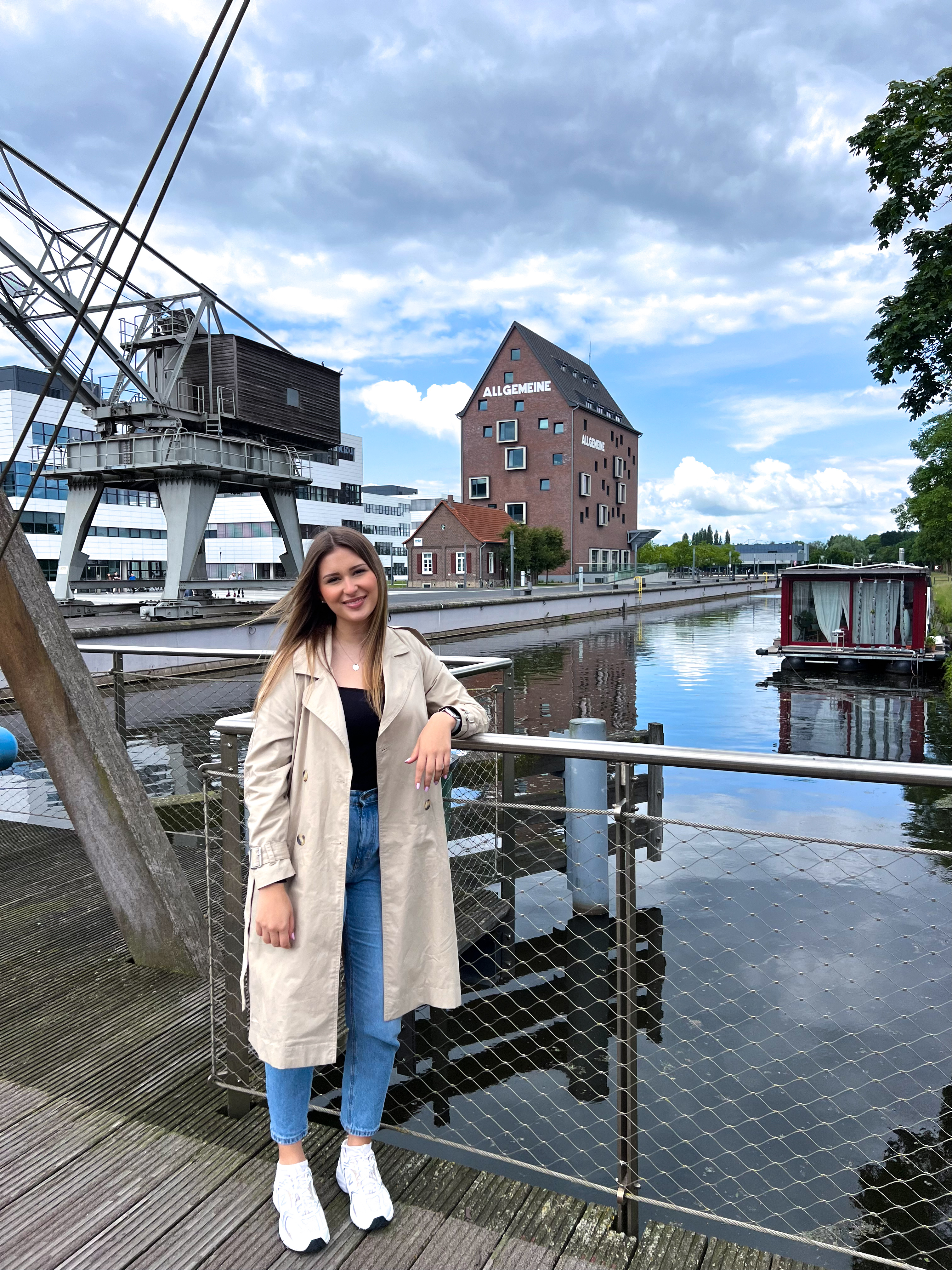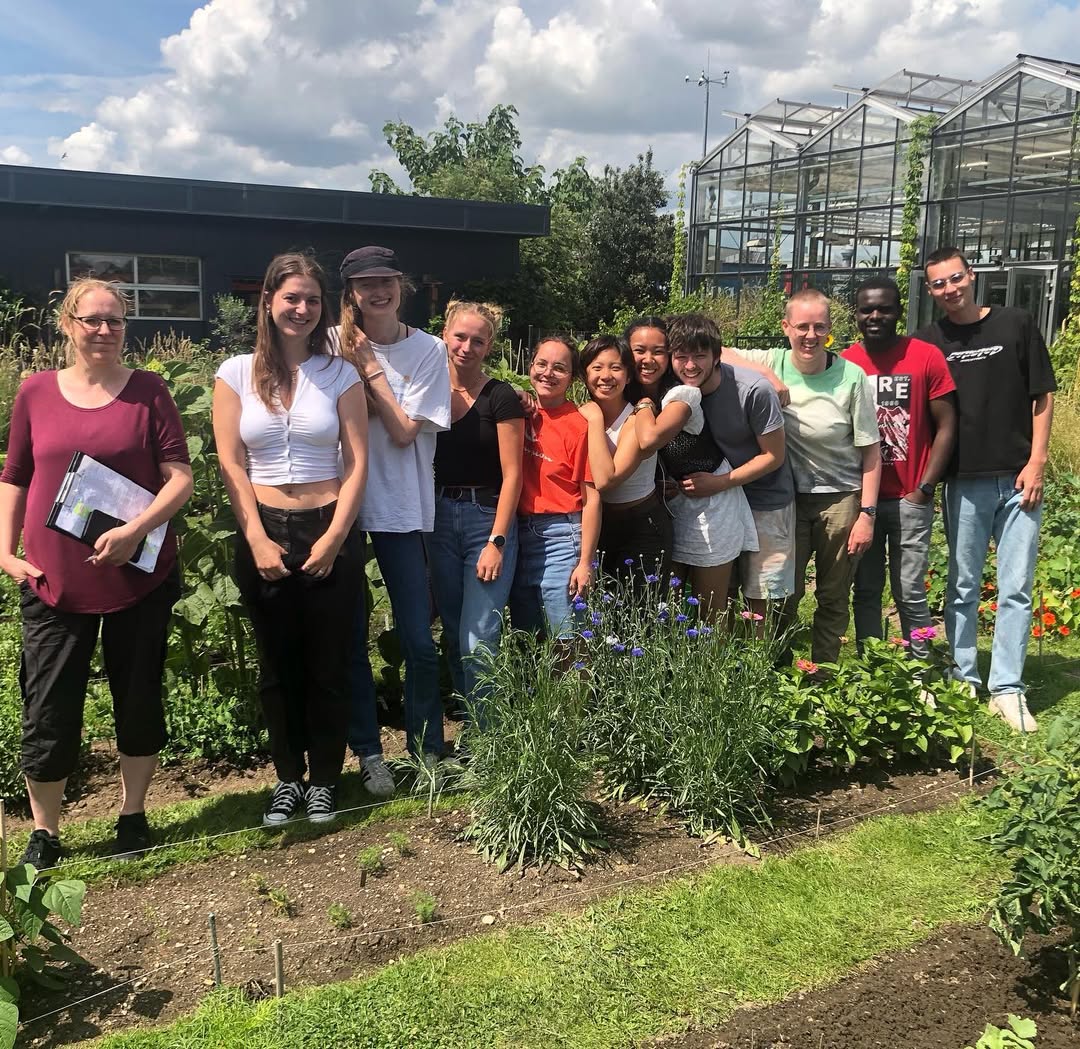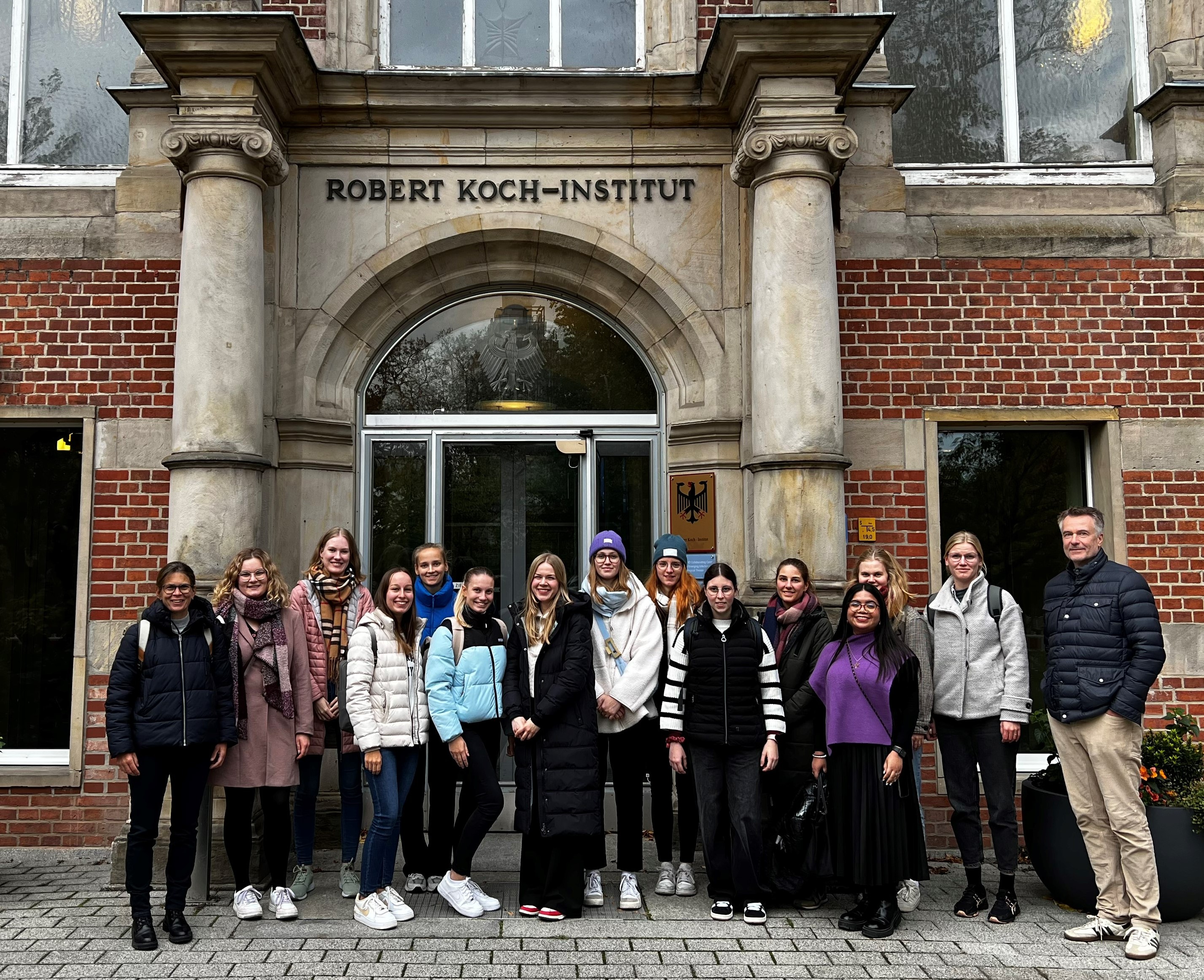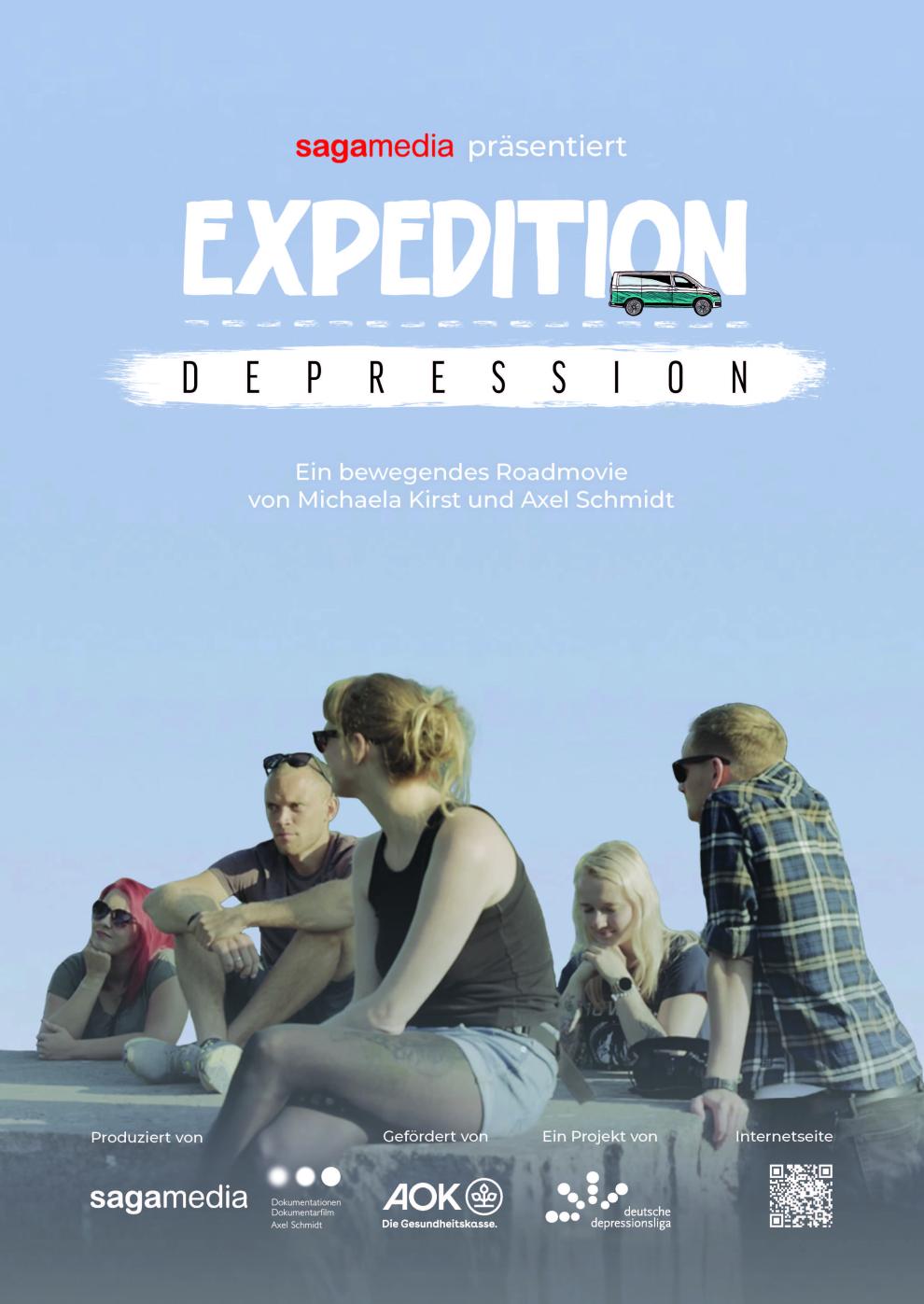Health Sciences and Management*
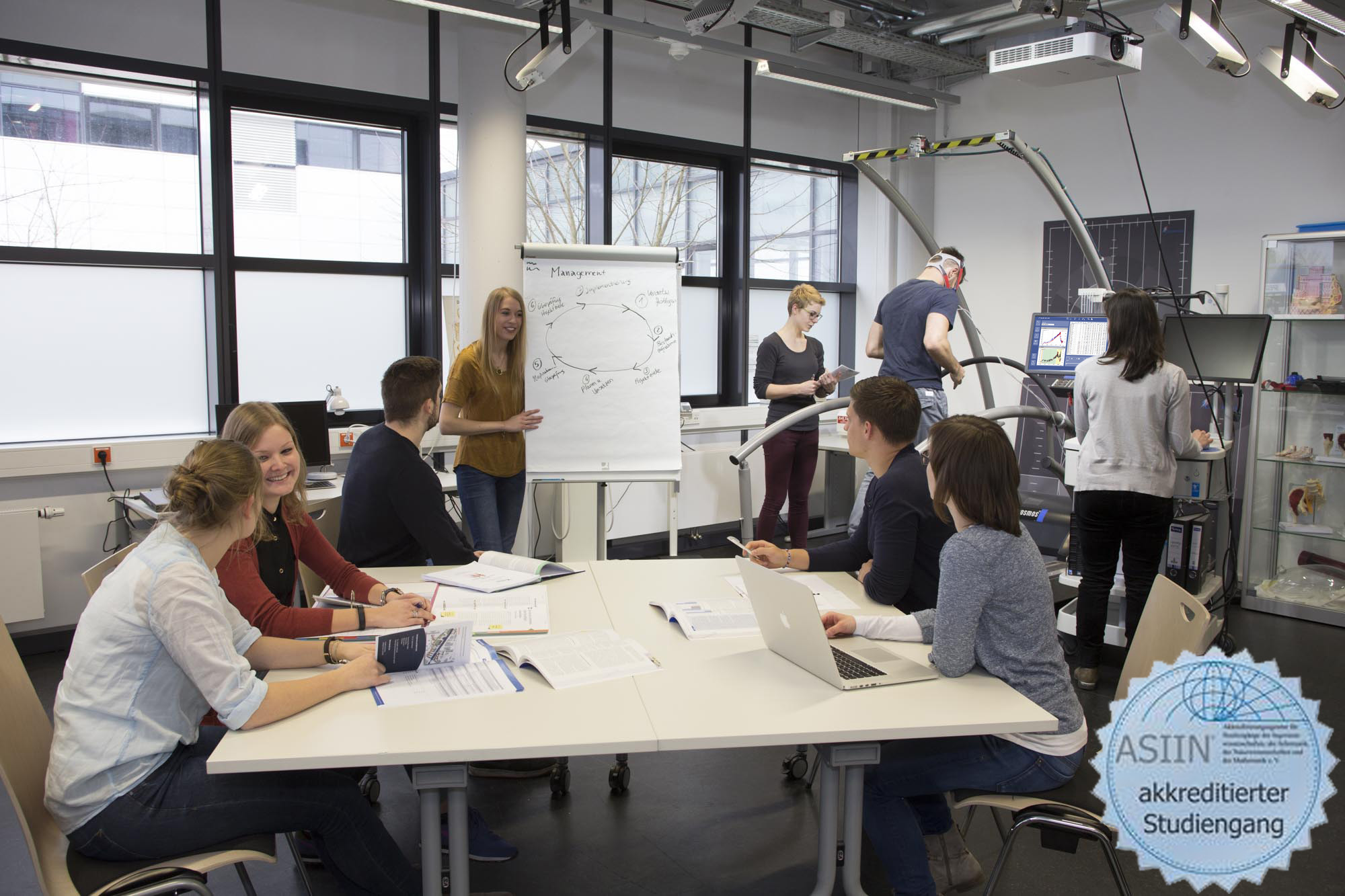
Preventive and precautionary healthcare – managing health before the doctor visit
The German healthcare industry is in a state of perpetual change. The information needs of companies and citizens, who are among the industry’s most important stakeholders, have grown more complex and demanding over the years. Similar to other industrial nations, the German healthcare industry is projected to become a central pillar of future economic growth. In short, a combination of factors has led to an explosion in demand for health science and health administration experts in recent years – a trend that shows no signs of slowing.
The Health Sciences and Management M.Sc. programme is designed to train the next generation of these experts. In this degree programme you will acquire an array of advanced knowledge and competencies, providing you with the specialised theoretical and practical background needed for a career in the fields of health science, health promotion, preventative care and health administration. The solid scientific basis of this degree programme and the applied skills it imparts will produce highly qualified experts able to develop, implement and evaluate scientifically grounded practices of the healthcare industry.
Health Sciences and Management M.Sc. is an integrated master’s degree programme and builds upon a previously completed bachelor’s degree in a health science field. While its profile is heavily application-oriented, the programme also places particular emphasis on empirical health research, notably in terms of using empirical research methods to scientifically substantiate and optimise the practices and procedures of the healthcare industry.
Career Paths
Health Sciences and Management M.Sc. graduates will be in a prime position for careers in health sciences and in prevention, health promotion and health administration. This includes, in particular:
- Businesses
- Clinics and hospitals
- Communal and public healthcare services
- Corporate health administration and associated external suppliers
- Educational institutions (childcare centres, schools, adult education centres)
- Health insurance providers or employers’ liability insurance associations
- Medical consultancy
- Medical journalism
- Medical tourism
- Nutrition and consumer consultancy
- Promoting health-oriented physical activity amongst various target groups
* The degree programmes offered are suitable for part-time study in accordance with Section 62a (2) HG NRW.
Translation of Testimonials from Graduates and Students
Natasa Jovanovic, B. Sc.
What do you like most about the Master's program in Health Sciences and Management?
I particularly like that the different modules provide a holistic overview and thus allow you to recognize which areas you are most interested in and in which field you would like to work in the future. The professors were very dedicated and responded to the needs of the students. I also particularly liked the practical relevance of the degree program. In various modules, we had internships directly on-site, where we were able to use many exciting devices or conduct experiments. This allowed us to connect the content of the modules well with practice. We also had two projects with external partners, which were very interesting. Through the project organization and implementation, we were able to acquire many methodological and content-related skills and possibly make important contacts for our later professional lives. Looking back, however, what I like most is that, in contrast to my bachelor's degree, I have developed many soft skills, which gives me confidence for starting my professional life.
What has been your highlight in the program so far?
The highlight was the trip to Berlin in the summer semester of 2023. We had a great time there and the trip was very well organized by the university. On-site, we had a super exciting and diverse program. We visited the Bundestag, were at the Federal Ministry of Health, and were even allowed to visit Pfizer. At the same time, you got to know your fellow students better and the sense of community was strengthened. We also had enough free time to explore Berlin. I took a lot away from this trip, including insights into various career opportunities. I am very grateful to have been given the opportunity to participate.
What challenges have you experienced in the program so far?
Challenges were having to reorganize myself, getting work and studies in order at the same time. The workload is significantly higher in the Master's program, including multiple examinations for one module. I had to learn to organize myself properly in this regard. This was a major challenge, especially in the first semester, but it quickly settled down. In addition, I had problems giving presentations before the program. However, the Master's program has alleviated that fear, as constant practice and positive feedback made the fear disappear.
What tips do you have for future students of this Master's program?
I would recommend future students to organize themselves well from the beginning. It is important to actively participate in the discussions and projects, as this is how you learn the most and can make valuable contacts. You should also take advantage of the university's offerings such as counseling services and networking events. And finally: Enjoy the time and be open to new experiences - both academically and personally.
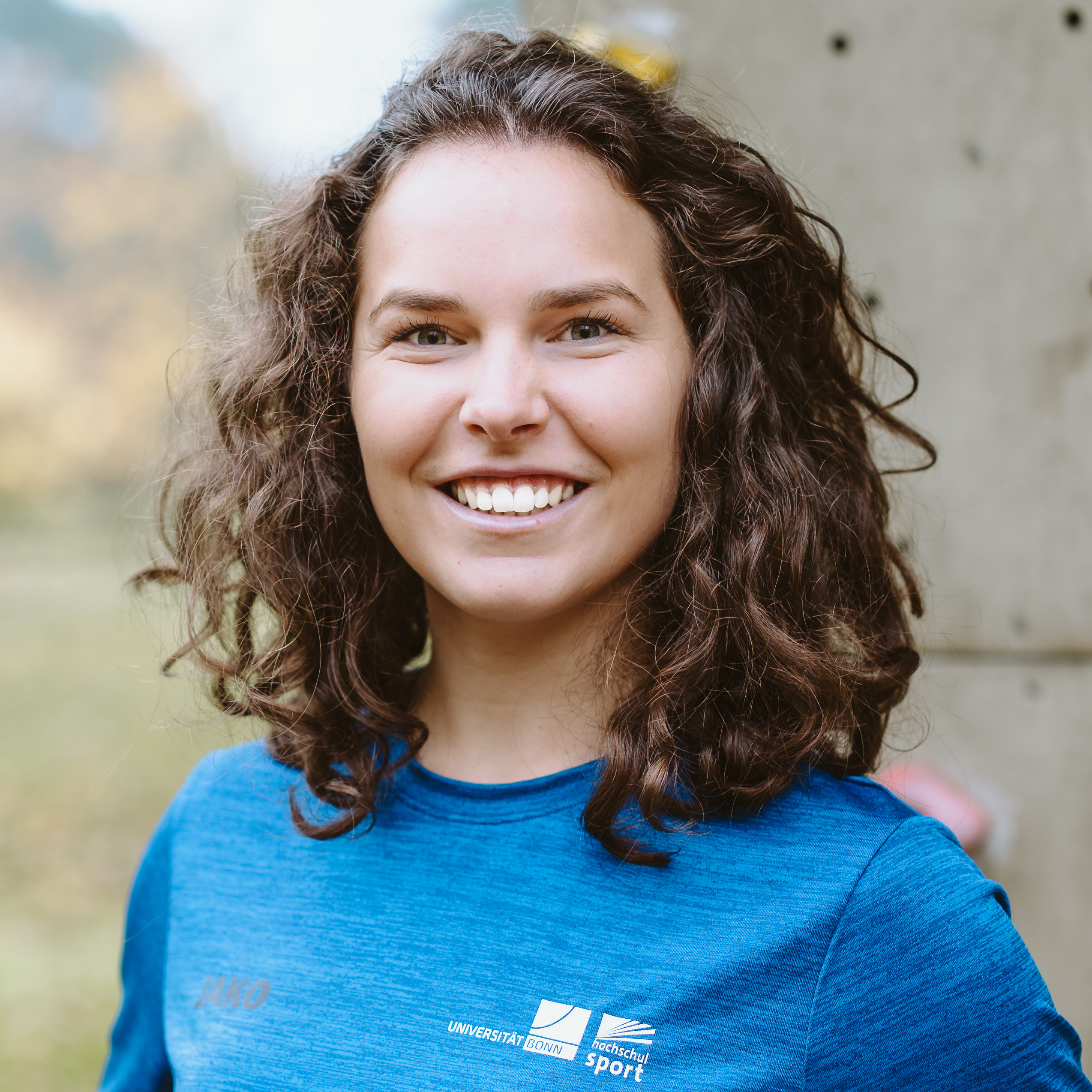
Foto: Bernadette Yehdou
Nathalie Kubin, M.Sc.
What did you like most about your Master's program in Health Sciences and Management?
I was particularly enthusiastic about the GW04 module "Health Promotion and Prevention" as well as the applied research projects I + II (GW06, GW12). A personal highlight for me were the internships within the framework of GW04. There we had the opportunity to carry out and try out various endurance performance diagnostics. These included, among others, a running analysis, lactate diagnostics, spiroergometry, and the Cooper test. In addition, we gained insights into the topics of addiction prevention and back health, with a strong focus on practice-oriented work. We were able to try out various methods such as the use of addiction glasses, EMS training, and the Spacecurl.
Another highlight was undoubtedly the excursion to Berlin. There we had the opportunity to gain comprehensive insights into our health policy. Thanks to a diverse program, the excursion became an extremely worthwhile trip that brought us many new insights.
I found the interaction between lecturers and students particularly impressive. It was clearly noticeable that there was an atmosphere of mutual appreciation and respect. The lecturers were committed and showed great interest in the progress of the students. It was encouraging to see how they always strived to maintain a relationship at eye level.
Which contents of the Master's program were most valuable for your current position as project coordinator in university sports?
The research projects provided me with practical insights and skills that could be directly transferred to my role as project coordinator. The knowledge from the Occupational Health Management modules helped me to develop effective strategies for the management of health projects. The Health Promotion and Prevention modules gave me important basics and methods for the implementation of health promotion measures. The knowledge in health tourism broadened my horizons and helped me to develop new perspectives for the organization of health events.
How did you feel about writing your Master's thesis?
I found writing my Master's thesis to be challenging but manageable. I chose a topic that interested me and had a strong practical relevance. This allowed me to make a difference at the research site and at the same time had prospects for further research. These factors helped me stay motivated and focused. Another point that made writing easier for me was the support from my supervisor. Regular feedback sessions helped me stay on track and continuously improve my work.
Which practical skills were you able to acquire through your studies that you now use in your position?
Especially time management and structured work, as well as content from project management. These skills help me a lot with my current projects and tasks.

Laura Zimmermann, M.Sc.
What did you like most about your Master's program in Health Sciences and Management?
What I liked most about the Master's program in Health Sciences and Management was the small course size of usually 10-15 students, the proximity to the teachers, and the interdisciplinary orientation. From economics to natural sciences to sustainability, a wide range of content was taught by teachers with different backgrounds, so that you yourself become a bit of an all-rounder. Also, the fellow students brought in a wide variety of Bachelor's degree programs (Health Management, Food Sciences, Business Administration, Medical Informatics), which allowed us to complement each other well.
How has the program influenced your professional future?
Due to its interdisciplinary approach, the program conveyed topics from all possible areas of healthcare, so that you are well prepared for various career perspectives. In addition to the technical input, skills such as teamwork (through group work) and presentation skills (through frequent presentations) were also promoted, which is essential for the world of work.
What motivated you to choose this degree program?
In my Bachelor's program, I already focused on healthcare, so it quickly became clear to me that I also wanted to deal with the topic of health management in my Master's. I chose the HSRW because it is very modernly equipped and has small course sizes. It was also attractive to me that the program is only designed for three semesters and you therefore have the opportunity to incorporate a semester abroad as a supplement.
What practical skills were you able to acquire through your studies?
Apart from a few modules, the program is rather theoretically oriented, which is also in the nature of a management program. However, within the realm of possibility, attempts were made to convey practical content as well, e.g. through guest lectures by employees from pharmaceutical companies and health authorities, excursions to health fairs, and invitations to events with a health focus. A hospital simulation game was also carried out, in which various decisions had to be made as a "management group". Since I now work in a hospital, I think that the simulation game has taught me the most practical skills.
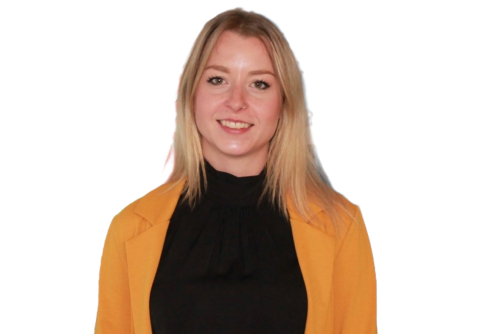
Lisa Kesper, M.Sc.
Why did you choose the Master's program in Health Sciences and Management?
Originally, I trained as a dental assistant. However, I couldn't imagine doing this job for the rest of my life and wanted to study after all. Because I was looking for a bachelor's degree in the field of healthcare and also wanted to stay close to my home in the Lower Rhine region, I found the Bio Science and Health program at Rhine-Waal University of Applied Sciences. This appealed to me very much because it is a broad-based program and it was ultimately the right decision. However, it was not at all a matter of course for me to add a Master's degree. I went to the colloquium and said that's it, I'm done. I already had a job, as I had completed my internship with an external occupational health management provider in Wesel and continued to work there part-time afterwards. My plan was to enjoy my life for a while and then work full-time.
When I came out of the colloquium, I said I would do the Master's. Professor Renner convinced me by, on the one hand, promoting the Master's well and presenting the content more concretely, and on the other hand, arguing very logically that if you have the potential, you should use it, since one and a half years of standard study time is not much compared to the rest of your working life. In the short term, a Master's degree can offer extreme added value and the risk is smaller that everyone else will eventually overtake you and you won't develop yourself further. I had also looked at the modules beforehand and saw that the content fit very well with my job at the time. I already thought that it could be a good addition, but in the end it was really Professor Renner who convinced me to take this step. I am very grateful for that.
What was the topic of your Master's thesis?
The title of my Master's thesis is: "Occupational health management to strengthen the crisis resistance of companies: Development of an instrument for measuring and evaluating the psychological resilience of employees". Due to the Corona pandemic, it was appropriate to write about resilience and crisis resistance in companies. However, I took on a bit too much with my Master's thesis, as my ambition ran away with me. I was working for the occupational health management service provider and my colleague, who was also the second examiner, is a psychologist. I built this up together with him and the goal was to develop an instrument that can measure the resilience of companies. This instrument consists of four parts, which can also be used individually according to a modular principle. I was actually able to apply one part of it in my current job with the police. Corporate resilience is composed of personal resilience, leadership resilience, and team resilience. I developed a questionnaire for each individual component and in total, you could measure corporate resilience with it. Professor Renner asked me if I was sure I wanted to make it so comprehensive, but I really wanted to implement it because it was important to me to create an output that could then also be used for work. Through my Bachelor's thesis, I had already gained experience with literature research and questionnaire development, which definitely helped me. And if it was thematically appropriate, I could sometimes write at work, which also made things easier for me. I am very grateful that my boss supported me so much with this. Towards the end, it became really exhausting with all the evaluations and the detailed description of individual figures and evaluations and at some point, I was a bit out of steam. But I am still glad to have chosen this comprehensive topic and to have persevered. I still have my Master's thesis lying around at work and can always extract a lot of information from it and for that, it was worth it.
How can you imagine your everyday work?
Extensive and exciting. I am an occupational health management officer, sports officer, occupational safety and health officer, and BEM officer. Occupational health management is the biggest part of my job. I am allocated a certain budget at the beginning of each year and I can then work with that. I then write concepts and plan a corresponding program and if there are no more adjustments, I receive the release of funds. Then I can implement all the planning and that is super exciting. In the sports area, I organize the in-service sports program as well as everything around the topic of sports such as health days. In occupational safety and health, there are many topics that are very formal and bureaucratic. The meaningfulness is sometimes lacking, but this is due to the strict requirements. But even in occupational safety and health, I have the opportunity to do many good things. This starts with ergonomic workplace design, through risk assessments to procurements that ensure improvements. Finally, I am also responsible for BEM (company integration management) discussions. These are, of course, very sensitive and completely confidential, but you also get to know a lot through them. So my job is super varied, super exciting, and also a very rewarding position because I primarily only do good things for my colleagues.
Quicklinks
Information
Place of study
Campus Kleve
Start date
Winter or summer semester
Language
German
Duration of study
3 semesters of full-time studies
Study model
Full-time or part-time degree programme
Degree awarded
Master of Science
Restricted admission
No
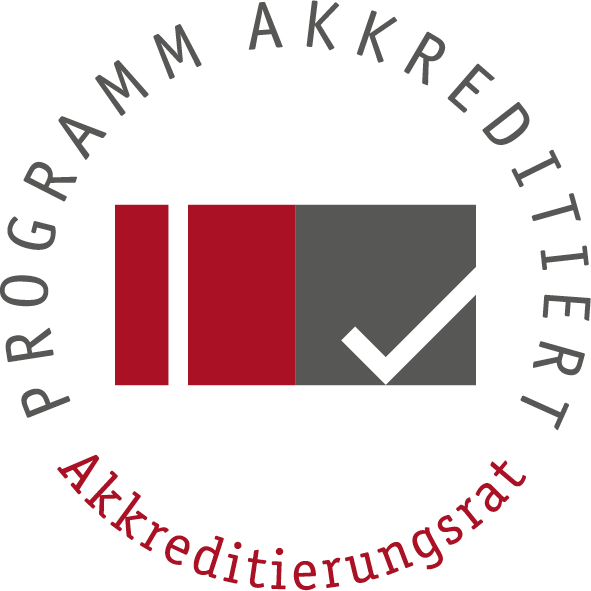
Student Advisory Service
Phone: 02821 - 806 73 - 360
E-mail: Studienberatung
Course-specific Advise
heads of study programme
Prof. Dr. Robert Renner
Phone: +49 (2821) 806 73-222
E-mail: Robert Renner
News from the Program
Your studies at the Faculty of Life Sciences Kleve: Application open for winter semester 2025/26.
The application window for the winter semester 2025/26 at the Faculty of Life Sciences right here in Kleve is now open! We have super exciting and practical Bachelor's and Master's degree programs for you – in German and English – that will prepare you for everything that is important in the Life Sciences. And check this out: For some degree programs without admission restrictions, you even have until August 31, 2025, to apply! Read more.
Occupational health management: students gain insights into the work of the Bundestag, ministry and Robert Koch Institute
Bringing health to employees - students on the Master's degree programme in Health Sciences and Management and the Bachelor's degree programme in Bio Science and Health at Rhine-Waal University of Applied Sciences gained exciting insights into the work of central institutions that have a significant influence on occupational health management - Betriebliche Gesundheitsmanagement (BGM) in Berlin. The excursion offered the opportunity to combine theoretical content with practical experience. Read more.
‘Expedition Depression’ - Master's students raise awareness and destigmatise mental illnesses
How do you recognise depression? What forms can it take and what support services are available, especially for young people? On 26 November 2024, students of the Master's degree programme in Health Sciences and Management, in cooperation with AOK Rheinland/Hamburg, invite you to a film screening followed by a panel discussion. Read more.
Deepening knowledge and experiencing health awareness - Visit to the international leading trade fair for fitness and health in Cologne
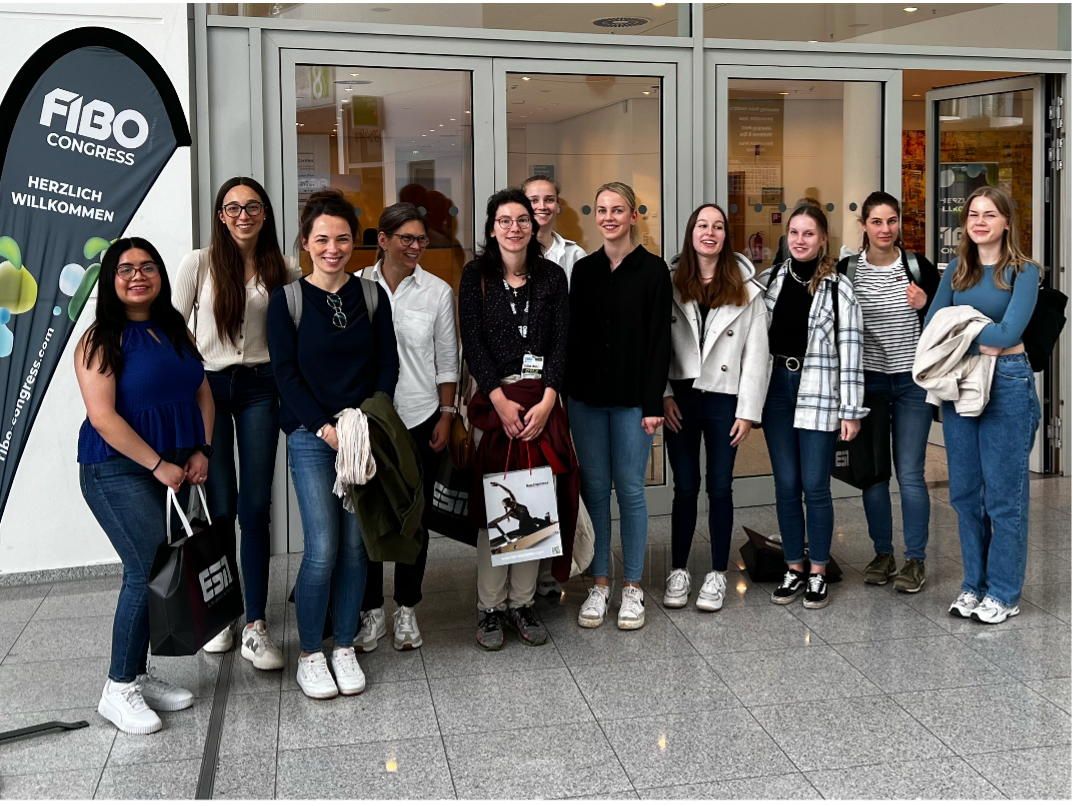
Students from the Master's program “Health Sciences and Management” at the Rhine-Waal University of Applied Sciences gained valuable insights into the latest trends and developments in the health sector at the international leading trade fair FIBO in Cologne. Accompanied by leading experts, they experienced innovative lectures and training methods that bridge the gap from peak performance to everyday health awareness. Read more.
The Future of Health – Experiencing Population Healthcare Up Close
 Deepening theory and experiencing it in practice: Students of the Master's program "Health Sciences and Management" at Rhine-Waal University of Applied Sciences had the opportunity to visit important institutions in the health sector in Berlin and gained valuable insights into current topics and career opportunities. Read more
Deepening theory and experiencing it in practice: Students of the Master's program "Health Sciences and Management" at Rhine-Waal University of Applied Sciences had the opportunity to visit important institutions in the health sector in Berlin and gained valuable insights into current topics and career opportunities. Read more
Optimal energy supply in triathlon even with special diets?
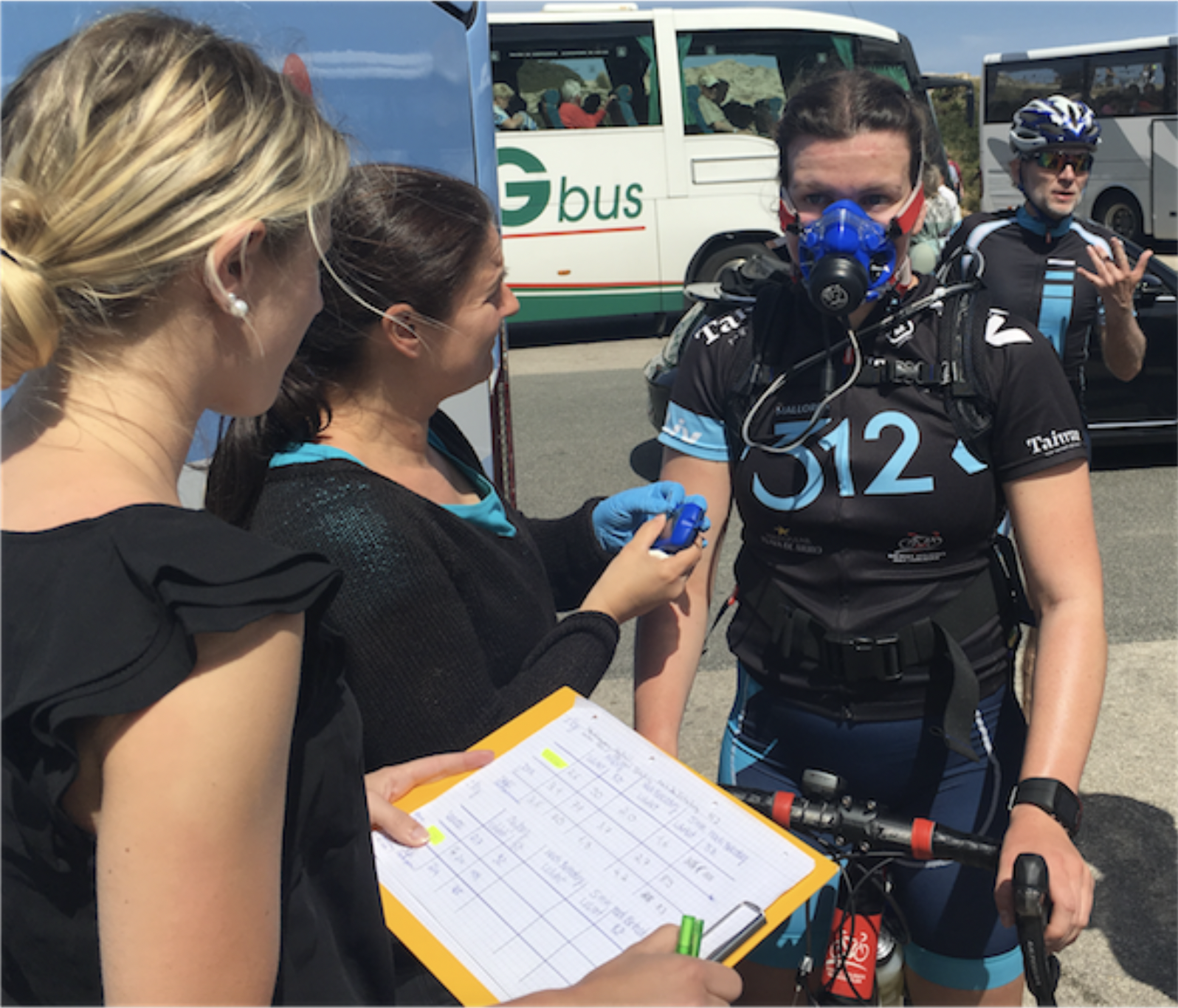
Students of the Master's program “Health Sciences and Management” examined the effects of various diets (Paleo, Vegetarian, and Mixed Diets) during a training camp for triathletes preparing for the upcoming season, as part of an applied research project. Read more.

